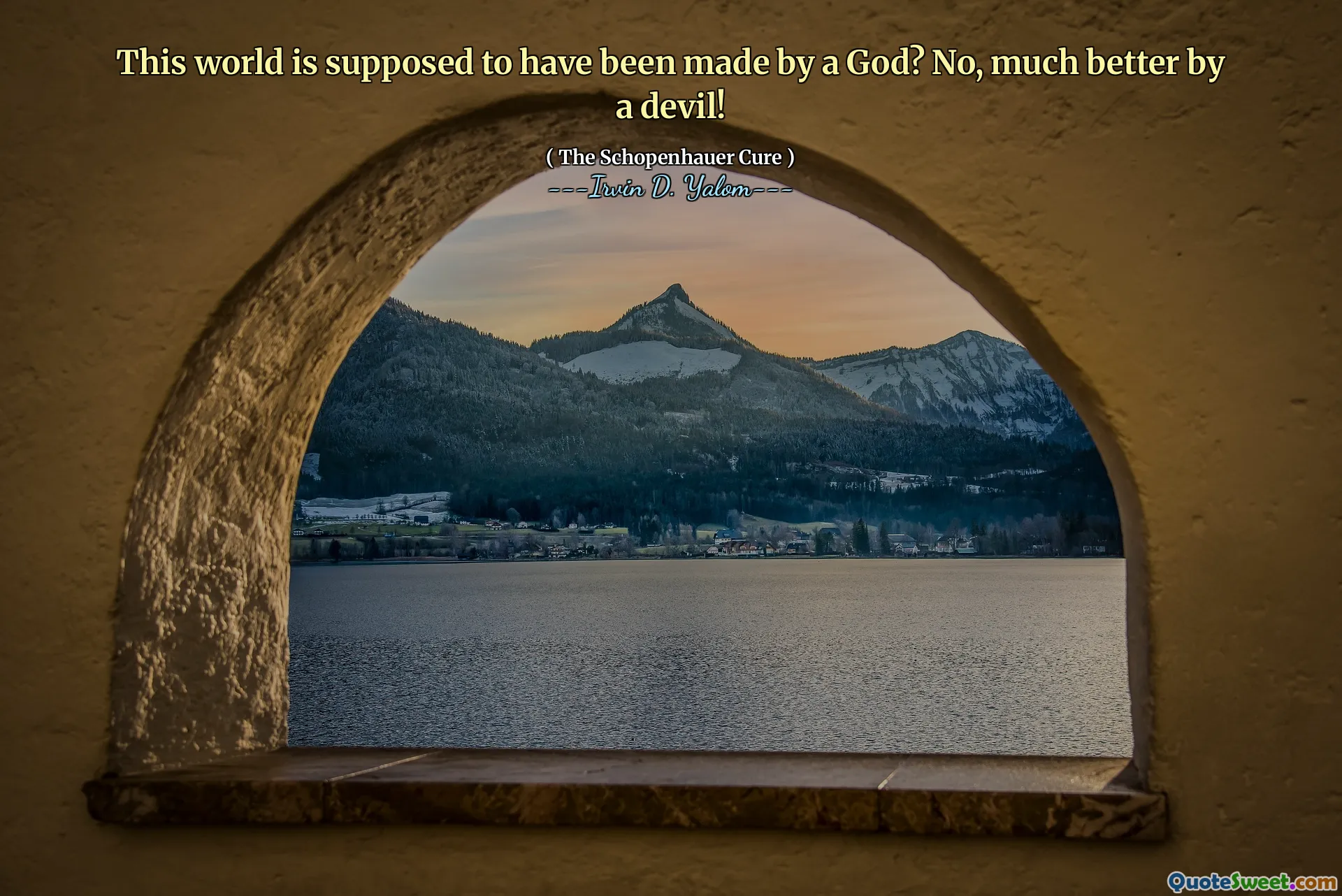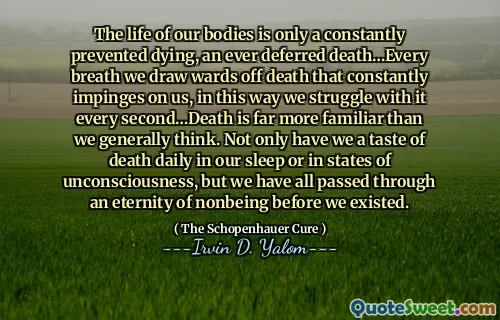
This world is supposed to have been made by a God? No, much better by a devil!
This provocative quote challenges the conventional notion of a benevolent and all-powerful deity as the creator of the world. It suggests that the existence of suffering, chaos, and cruelty may be more aligned with the influence of malevolent forces rather than divine goodness. Reflecting on this perspective allows us to ponder the nature of good and evil within our universe. If we see the world through a lens that attributes the darker aspects of human existence and natural calamities to a devilish influence, it raises questions about the source of moral authority and the complexity of human suffering. It also invites a reevaluation of traditional religious narratives that portray a perfect creator who simply permits or designs a universe with both good and evil. Moreover, this viewpoint might echo a philosophical skepticism about the notion of a purely benevolent divine power guiding human destiny. Such a stance can be unsettling, but it also catalyzes critical thinking about the origins of evil and the moral structure of our universe. The poem's stark imagery provokes us to confront the uncomfortable possibility that chaos and malevolence could be intrinsic to existence, or at least as significant as any divine influence. In literature and philosophy, this idea underscores the tension between optimism and pessimism regarding the universe’s moral fabric. It pushes us to question whether moral order is externally imposed or internally derived. The quote ultimately stirs a deep subconscious debate about the nature of reality, morality, and the unseen forces that shape human life—highlighting the ongoing struggle to find meaning amid apparent disorder.







